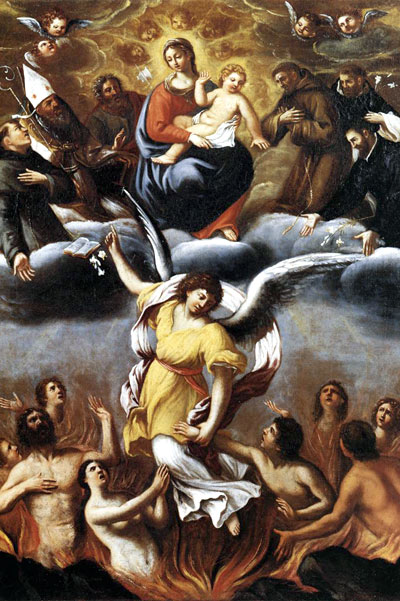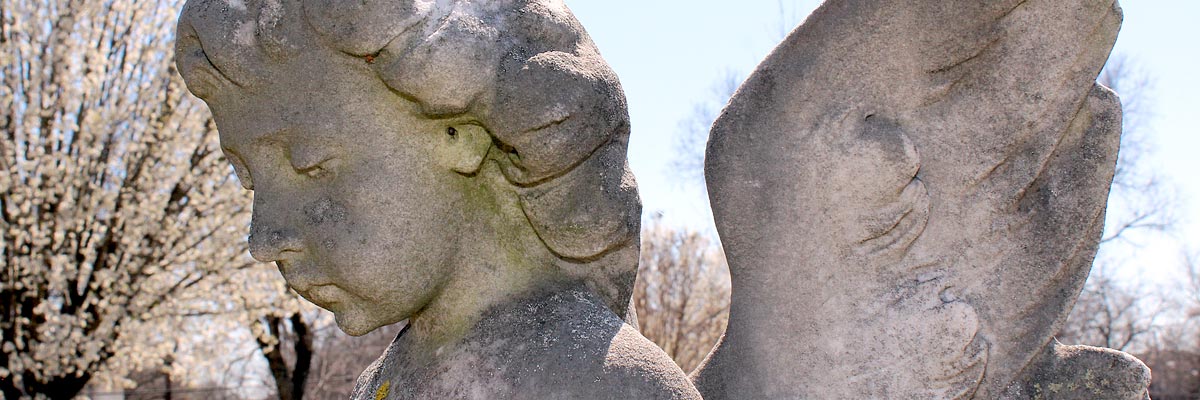Official Website of the
Catholic Diocese of Little Rock
Commemoration of All Faithful Departed (All Souls' Day)
Saturday, Nov. 2, 2024
Location: All Parishes
"Purgatory is the process by which God remedies all that is lacking in us and that’s where our prayers can help the dead. Just as in this life, so also in purgatory, growth and healing is much easier when you’ve got help, in this case the help of our prayers." — Bishop Anthony B. Taylor
The Commemoration of All the Faithful Departed, or All Souls' Day, is the feast day dedicated to praying for all those who have died and are in purgatory. Souls in purgatory "have not yet been purified" in order to enter heaven. That said, the Church teaches those in purgatory will get to heaven eventually and our prayers help them get there.
"All who die in God's grace and friendship, but still imperfectly purified, are indeed assured of their eternal salvation; but after death they undergo purification, so as to achieve the holiness necessary to enter the joy of heaven." (Catechism of the Catholic Church, no. 1030)
 All Souls' Day should not be confused with All Saints' Day, which is celebrated on Nov. 1. All Saints' Day is the feast on which we celebrate those who have died and gone to heaven. Catholic teaching holds that all people in heaven are saints. We ask them to pray for us so we can follow their example. All Saints' Day is a holy day of obligation to attend Mass. Contact a parish near you for holy day Mass times.
All Souls' Day should not be confused with All Saints' Day, which is celebrated on Nov. 1. All Saints' Day is the feast on which we celebrate those who have died and gone to heaven. Catholic teaching holds that all people in heaven are saints. We ask them to pray for us so we can follow their example. All Saints' Day is a holy day of obligation to attend Mass. Contact a parish near you for holy day Mass times.
Our prayers can help those in purgatory "atone for their sins and enter into heaven." That is why Catholic parishes celebrate All Souls' Day Masses, hold special prayer services and adoration times, bless graves, have rosary processions at cemeteries and place the photos of deceased loved ones near the altar in church. To find out how All Souls' Day will be celebrated in your area, contact a parish near you.
In his All Souls' Day homily, Bishop Anthony B. Taylor explains who might go to purgatory and why. "Here we are, finite and limited, full of defects and venial sins and distortions of character, some the lasting damage of sins already forgiven but with interior effects not yet fully healed. We are on the right track but far from perfect while heaven is everything that we are not: perfect, infinite and unlimited."
"Purgatory is the process by which God remedies all that is lacking in us and that’s where our prayers can help the dead. Just as in this life, so also in purgatory, growth and healing is much easier when you’ve got help, in this case the help of our prayers," he added. "And once they get into heaven, they’ll surely reciprocate by interceding for us — that’s what the communion of saints is all about — helping each other on the road to salvation."
Dia de los Muertos (Day of the Dead), a tradition that originated in Mexico, combines the religious aspects of All Saints' and All Souls' days with cultural traditions of honoring the dead. It is considered a national holiday and is celebrated from midnight Oct. 31 to Nov. 2 with the custom of "building private altars at the tomb of loved ones where families can bring the deceased person’s favorite foods, drinks, flowers and mementos." A common symbol is the skull, which symbolizes death and rebirth.
To learn more about the Church's teaching on purgatory, including biblical references, what saints have said about it and more, read Arkansas Catholic, Why We Need to Pray for the Dead, 20 Ways to Pray for the Holy Souls in Purgatory or Day of the Dead: A Celebration of Life.




